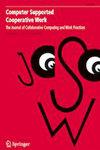A Subdomain Uncertainty-Guided Kriging Method with Subset Simulation for Reliability Estimation
IF 2.3
3区 计算机科学
Q3 COMPUTER SCIENCE, INTERDISCIPLINARY APPLICATIONS
Computer Supported Cooperative Work-The Journal of Collaborative Computing
Pub Date : 2023-05-24
DOI:10.1109/CSCWD57460.2023.10152591
引用次数: 0
Abstract
Direct Monte Carlo Simulation for reliability estimation of rare failure event is challenged by the complicated performance function evaluations and large candidate sample pool. To address these challenges, a subdomain uncertainty- guided Kriging method with subset simulation is proposed. With a concise uncertainty assessment function, efficient subdomain uncertainty-guided sampling strategy is first developed to refine the Kriging model that is used to replace real performance function approximately. Moreover, the number of candidate samples required by subset simulation is also significantly reduced. By sequentially exploiting within the candidate sample pools generated in the first intermediate failure event and other intermediate failure events, an accurate Kriging model can be constructed subsequently. The ingenious method of coupling Kriging and subset simulation can greatly improve the efficiency of reliability estimation. Finally, three classical examples are investigated as benchmark to explore the performance of the proposed method. The comparison results demonstrate the good capability and applicability of the proposed method.基于子集仿真的子域不确定性引导Kriging可靠性估计方法
由于性能函数评估复杂,候选样本池大,直接蒙特卡罗仿真对罕见故障事件的可靠性估计提出了挑战。为了解决这些问题,提出了一种子域不确定性引导的Kriging方法。首先利用简洁的不确定性评估函数,提出了高效的子域不确定性引导采样策略,对Kriging模型进行了改进,近似替代了实际性能函数。此外,子集模拟所需的候选样本数量也显著减少。通过在第一个中间故障事件和其他中间故障事件产生的候选样本池中依次挖掘,可以构建准确的Kriging模型。巧妙地将Kriging和子集仿真相结合,大大提高了可靠性估计的效率。最后,以三个经典实例为基准,探讨了该方法的性能。对比结果表明,该方法具有良好的性能和适用性。
本文章由计算机程序翻译,如有差异,请以英文原文为准。
求助全文
约1分钟内获得全文
求助全文
来源期刊

Computer Supported Cooperative Work-The Journal of Collaborative Computing
COMPUTER SCIENCE, INTERDISCIPLINARY APPLICATIONS-
CiteScore
6.40
自引率
4.20%
发文量
31
审稿时长
>12 weeks
期刊介绍:
Computer Supported Cooperative Work (CSCW): The Journal of Collaborative Computing and Work Practices is devoted to innovative research in computer-supported cooperative work (CSCW). It provides an interdisciplinary and international forum for the debate and exchange of ideas concerning theoretical, practical, technical, and social issues in CSCW.
The CSCW Journal arose in response to the growing interest in the design, implementation and use of technical systems (including computing, information, and communications technologies) which support people working cooperatively, and its scope remains to encompass the multifarious aspects of research within CSCW and related areas.
The CSCW Journal focuses on research oriented towards the development of collaborative computing technologies on the basis of studies of actual cooperative work practices (where ‘work’ is used in the wider sense). That is, it welcomes in particular submissions that (a) report on findings from ethnographic or similar kinds of in-depth fieldwork of work practices with a view to their technological implications, (b) report on empirical evaluations of the use of extant or novel technical solutions under real-world conditions, and/or (c) develop technical or conceptual frameworks for practice-oriented computing research based on previous fieldwork and evaluations.
 求助内容:
求助内容: 应助结果提醒方式:
应助结果提醒方式:


